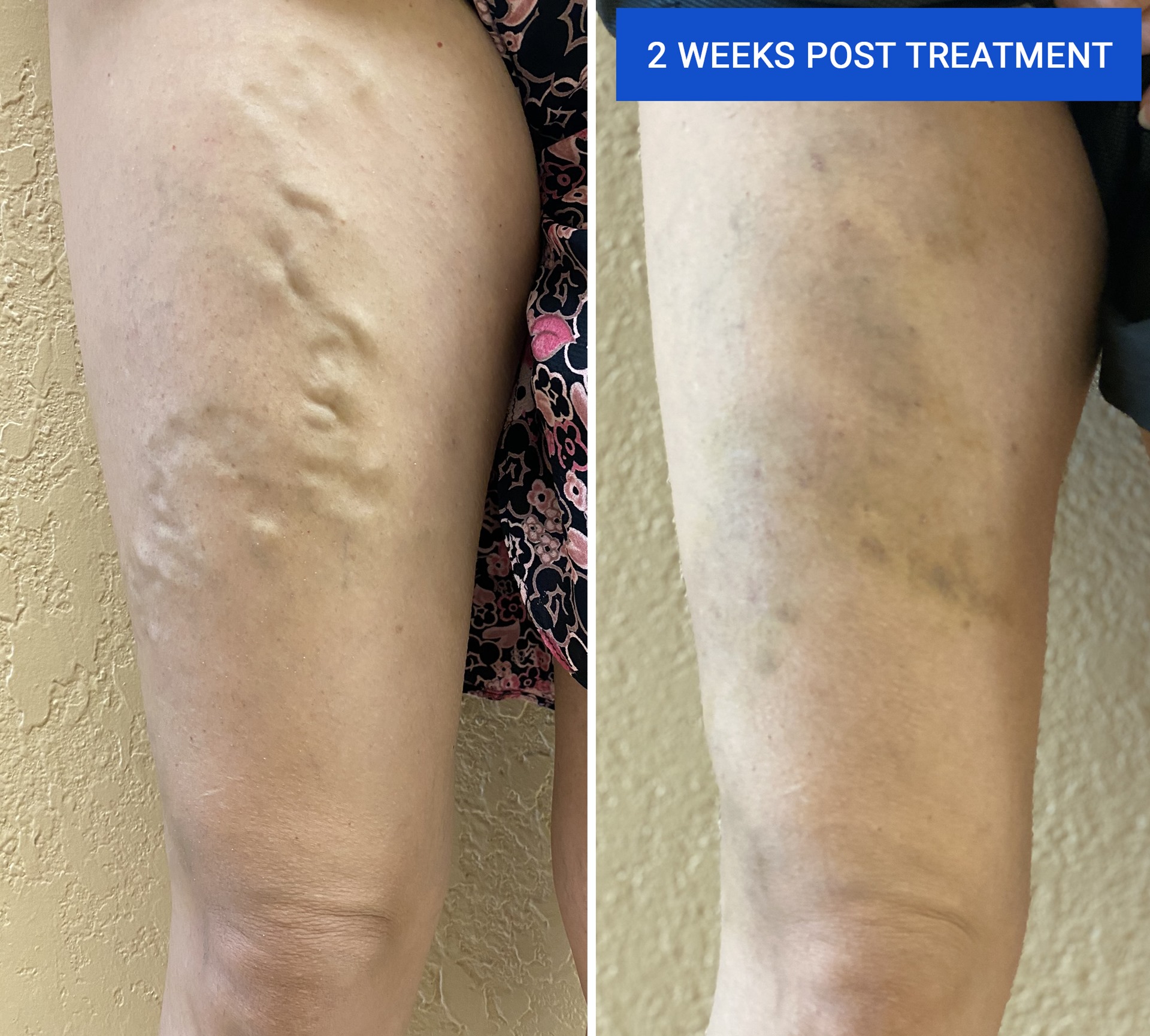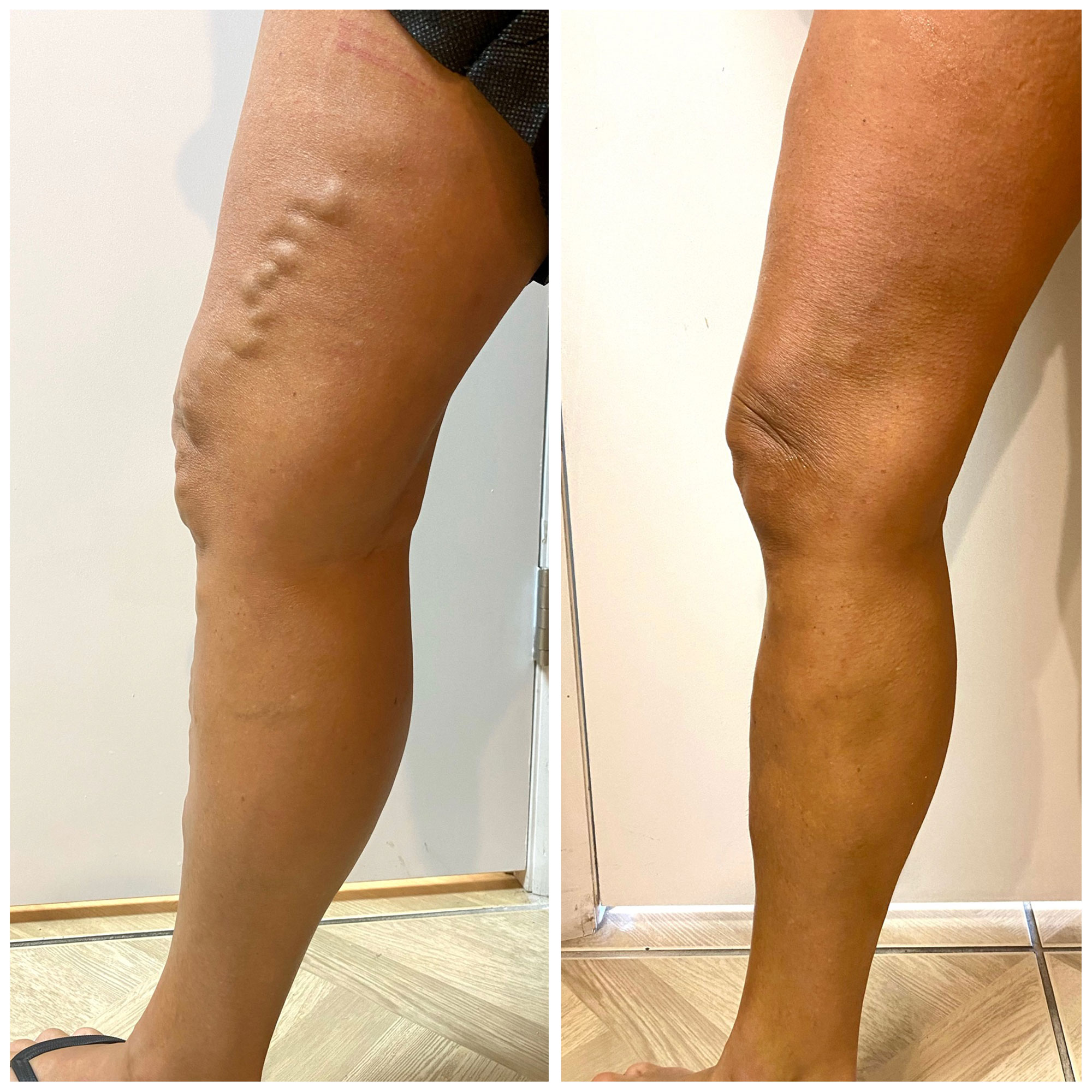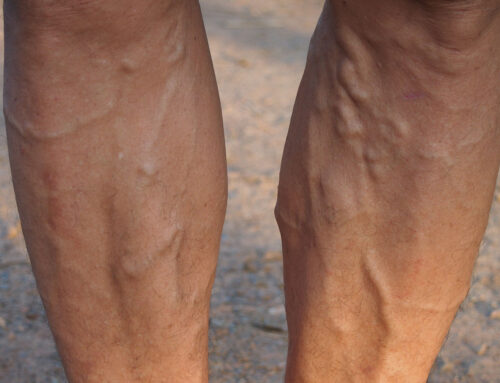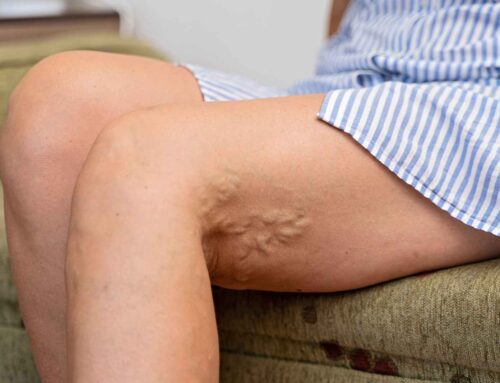Varicose veins are more than just a cosmetic issue; they can significantly influence an individual’s emotional and psychological well-being. The twisted veins, often visible on the legs, can lead to various body image concerns that affect self-esteem and mental health. In this article, we will explore the emotional impact of varicose veins, the treatment options available, and how addressing these issues can help boost confidence and improve overall well-being.
What is the Emotional Impact of Varicose Veins on Mental Health?
How do varicose veins affect self-esteem?
The presence of varicose veins can lead individuals to feel self-conscious about their appearance, particularly when wearing clothing that exposes their legs. This concern can create a ripple effect on self-esteem. People with varicose veins may avoid social activities or settings where they feel their physical appearance is scrutinized. The emotional impact of varicose veins extends beyond mere vanity; it can lead to a significant decline in one’s self-worth, prompting feelings of embarrassment and inadequacy. As a result, individuals may find themselves retreating from social engagements, which can exacerbate feelings of isolation and negatively affect their mental health.
What are the emotional and psychological effects of varicose veins?
The psychological impact of varicose veins can manifest in various ways. Many people experience anxiety and depression as they grapple with the appearance of their twisted veins. The emotional burden of having to deal with these physical symptoms can lead to chronic stress, which further complicates mental well-being. Moreover, the constant worry about how others perceive them can create a harmful feedback loop, where negative feelings about their physical appearance contribute to poor mental health outcomes. The emotional and psychological effects of varicose veins are not to be underestimated, as they can lead to a diminished quality of life.

Can varicose veins lead to mental health concerns?
Yes, varicose veins can lead to various mental health concerns. The association between physical appearance and mental health is well-documented, and varicose veins can be a source of distress for many individuals. Concerns about body image issues can trigger anxiety, and in severe cases, these feelings can lead to depression. For some, the persistent discomfort associated with varicose veins, including pain and fatigue, may also contribute to mental health struggles. Addressing these concerns through appropriate treatment options can not only alleviate physical symptoms but also promote better mental health outcomes.
How Do Varicose Veins Affect Body Image and Well-being?
What body image concerns arise from having varicose veins?
Varicose veins can evoke significant body image concerns. The visible appearance of twisted veins may lead individuals to feel unattractive, impacting their self-image and how they perceive their overall body. This concern can be particularly pronounced in women, who may feel societal pressure to conform to certain beauty standards. As a result, people with varicose veins may develop negative body image perceptions, which can affect their social interactions and relationships. Addressing these body image issues is essential for improving overall well-being and fostering a positive self-image.
How can varicose veins impact overall well-being?
The impact of varicose veins on overall well-being extends beyond physical discomfort. The emotional toll of living with visible vein issues can lead to mental health concerns, including anxiety and depression. Additionally, the physical symptoms associated with varicose veins, such as swelling, heaviness, and pain, can hinder one’s ability to engage in regular activities, further diminishing quality of life. The interaction between physical and emotional health is critical; poor vein health can lead to a decline in mental well-being, creating a cycle that can be challenging to break.
What can be done to improve body image with varicose veins?
Improving body image with varicose veins often begins with seeking appropriate treatment options. Consulting with a vein specialist can provide individuals with the information they need to make informed decisions about their vein health. Various treatments, such as sclerotherapy and minimally invasive procedures, can help improve the appearance of varicose veins. Additionally, adopting a healthy lifestyle that includes regular exercise and a balanced diet can contribute to improved overall well-being and body image. Counseling or support groups may also be beneficial for individuals looking to address the emotional impact of varicose veins and foster a positive self-image.
What Treatment Options Are Available for Varicose Veins?
What are the various vein treatment options?
There are several treatment options available for varicose veins that can help alleviate both physical symptoms and emotional concerns. Sclerotherapy is a commonly used procedure that involves injecting a solution into the affected veins, causing them to collapse and fade from view. Other treatments include laser therapy, which uses focused light to treat smaller spider veins, and endovenous laser treatment, which targets larger varicose veins. Surgical options, while less common due to the rise of minimally invasive procedures, are also available for severe cases. A consultation with a vein specialist can help determine the most appropriate treatment based on individual needs and the severity of the condition.
How effective is sclerotherapy for varicose veins?
Sclerotherapy is known for its effectiveness in treating varicose veins and is often the first line of treatment recommended by vein specialists. Patients typically experience significant improvement in the appearance of their veins following the procedure, which can have a positive impact on self-esteem and body image. The recovery time is relatively quick, and many individuals are able to return to their regular activities soon after treatment. The emotional relief that comes from seeing a reduction in the appearance of varicose veins can also contribute to improved mental well-being, making sclerotherapy a valuable option for those affected.
What minimally invasive procedures are there for treating varicose veins?
Minimally invasive procedures for treating varicose veins have gained popularity due to their effectiveness and reduced recovery times compared to traditional surgical methods. Techniques such as endovenous laser therapy and radiofrequency ablation are designed to target problematic veins with minimal disruption to surrounding tissue. These procedures can significantly improve the appearance of varicose veins and relieve associated symptoms, ultimately leading to enhanced emotional well-being. Choosing a vein specialist experienced in these minimally invasive techniques can ensure patients receive the best possible care tailored to their specific needs.
How Can Treatment of Varicose Veins Boost Your Confidence?
In what ways can vein treatment improve self-esteem?
Vein treatment can play a crucial role in improving self-esteem for individuals affected by varicose veins. As the appearance of twisted veins fades following successful treatment, individuals often feel more confident wearing clothing that exposes their legs. This newfound confidence can translate into a more positive self-image and an overall boost in self-esteem. The emotional impact of seeing visible improvements in their physical appearance can lead individuals to engage more fully in social activities and embrace a more active lifestyle, further enhancing their mental well-being.

How does improving physical appearance impact emotional health?
Improving physical appearance has a profound impact on emotional health. For individuals with varicose veins, successful treatment can lead to a significant reduction in body image concerns and boost confidence. Feeling good about one’s appearance can foster positive feelings and reduce anxiety related to social interactions. This emotional uplift can create a positive feedback loop, where improved physical health leads to better mental health and vice versa. As individuals regain their confidence, they may find themselves participating in social activities they once avoided, further enriching their lives.
Can treatment help you feel more comfortable in social activities?
Yes, treatment for varicose veins can help individuals feel more comfortable in social activities. As they experience improvements in their appearance and alleviate physical symptoms, many people find themselves more willing to participate in gatherings and events. Whether it is wearing shorts in the summer, attending beach outings, or simply feeling confident in their everyday attire, the psychological impact of treatment can be transformative. This newfound comfort can lead to a more fulfilling social life, enhancing overall well-being and emotional health.
How to Live with Varicose Veins While Maintaining Mental Well-being?
The Emotional Impact of Varicose Veins: How Treatment Can Boost Confidence
Varicose veins, characterized by their twisted and swollen appearance, are not just a physical concern but also a significant emotional burden for many individuals. The impact of varicose veins extends beyond mere aesthetics; it can significantly affect one’s mental health, self-esteem, and overall well-being. Understanding the emotional impact of varicose veins and exploring treatment options can empower individuals to regain their confidence and improve their quality of life.
What is the Psychological Impact of Varicose Veins on Mental Health?
How do Varicose Veins Affect Body Image?
The appearance of varicose veins can lead to profound body image concerns. For many people, especially women, visible twisted veins can evoke feelings of embarrassment and self-consciousness. The societal pressures to maintain a certain aesthetic often exacerbate these feelings, leading individuals to avoid situations where their legs might be exposed, such as wearing shorts or swimsuits. This avoidance can create a vicious cycle; as they hide their legs, their body image issues may intensify, leading to more significant emotional distress. The psychological impact of varicose veins manifests not only in how individuals perceive their physical appearance but also in how they believe others perceive them.
What Mental Health Concerns Arise from Varicose Veins?
Varicose veins can cause various mental health concerns, including anxiety and depression. The emotional impact of varicose veins may lead individuals to feel isolated and withdrawn from social interactions. The fear of judgment from others regarding their physical appearance can exacerbate feelings of inadequacy. As individuals grapple with their self-image, they may also experience heightened stress levels, impacting their overall mental well-being. In some cases, these psychological effects may lead to more profound issues, such as chronic anxiety or depressive disorders, requiring professional intervention.
How Can Varicose Veins Lead to Low Self-Esteem?
Low self-esteem is a common consequence of living with varicose veins. When individuals are preoccupied with their appearance, it can overshadow other aspects of their lives, leading to a diminished self-worth. The physical symptoms associated with varicose veins, such as pain and discomfort, can further contribute to negative self-perceptions. People with varicose veins may feel that their condition defines them, overshadowing their achievements and personal qualities. As they struggle with body image and emotional distress, their self-esteem may plummet, creating a cycle that can be challenging to break.
How Do Varicose Veins Affect Well-Being and Social Activities?
What Social Activities Are Impacted by Varicose Veins?
Social activities often take a backseat for individuals dealing with varicose veins. The emotional impact of this condition can lead to avoidance of gatherings, events, or even simple outings where legs might be exposed. Individuals may choose to stay home rather than face the discomfort of feeling judged by others or dealing with the anxiety of showing their varicose veins. This withdrawal from social activities can lead to feelings of loneliness and isolation, further compounding the emotional and psychological effects of varicose veins.
How to Live with Varicose Veins and Maintain Well-Being?
Living with varicose veins while maintaining well-being requires a balanced approach. Individuals can incorporate lifestyle changes, such as regular physical activity and a healthy diet, to promote vein health. Understanding their condition and seeking information about varicose veins can empower individuals to manage their symptoms more effectively. It is essential to foster a supportive environment, whether through friends, family, or support groups, where individuals can share their experiences and feelings. Additionally, practicing self-compassion and focusing on personal strengths can help mitigate the emotional impact of varicose veins.
Can Varicose Veins Cause Emotional Distress in Social Situations?
Yes, varicose veins can cause significant emotional distress in social situations. The anxiety surrounding the visibility of twisted veins can lead individuals to experience panic or discomfort in social settings. This emotional distress can manifest as withdrawal from conversations, a reluctance to participate in physical activities, or a general sense of unease. Over time, these experiences can lead to a diminished quality of life, as individuals may avoid social interactions altogether due to the fear of being judged or ridiculed.
What Treatment Options Are Available for Varicose Veins?
What Minimally Invasive Treatments Are Effective for Vein Issues?
Fortunately, various treatment options can effectively address varicose veins. Minimally invasive treatments, such as sclerotherapy and endovenous laser therapy, have gained popularity due to their effectiveness and reduced recovery times. Sclerotherapy involves injecting a solution directly into the affected vein, causing it to collapse and fade from view. These approaches not only target the appearance of twisted veins but also alleviate associated physical symptoms, leading to improved overall well-being.
How Does Sclerotherapy Help with Varicose Veins?
Sclerotherapy is a particularly effective treatment for varicose veins and spider veins. By introducing a sclerosing agent into the affected veins, this procedure prompts the veins to close and eventually be absorbed by the body. Patients often report significant improvements in both the physical appearance of their veins and the associated discomfort. Beyond the physical benefits, sclerotherapy can have a profound emotional impact, as individuals often experience a boost in their self-esteem and body image following the procedure. The psychological impact of this treatment can lead to increased confidence and a more positive outlook on life.
When Should You Seek Support from a Vein Specialist?
It is advisable to seek support from a vein specialist when experiencing symptoms associated with varicose veins, such as pain, swelling, or significant changes in the appearance of your veins. Consulting a professional can provide clarity about the best treatment options available for your specific condition. Additionally, if the emotional impact of varicose veins is affecting your mental health or quality of life, reaching out for support is crucial. A vein specialist can offer comprehensive care that addresses both the physical and emotional aspects of living with varicose veins.
How Can Treating Varicose Veins Boost Your Confidence?
What Changes Can Be Expected After Vein Treatment?
After undergoing vein treatment, individuals can expect several positive changes. Physically, the appearance of varicose veins may diminish significantly, leading to a more aesthetically pleasing appearance. As the physical symptoms subside, individuals often report less discomfort and pain, allowing for a more active lifestyle. Emotionally, the boost in body image and self-esteem can be profound. Many people find that they feel more comfortable wearing shorts or engaging in social activities they once avoided, ultimately enhancing their overall quality of life.
How Do Patients Report Improvements in Body Image Post-Treatment?
Patients frequently report substantial improvements in body image following vein treatment. The emotional impact of reducing the visibility of varicose veins can lead to increased self-confidence and a renewed sense of pride in one’s appearance. Many individuals experience a shift in perspective, recognizing that their physical appearance does not define them. This transformation can lead to a more positive self-image and an overall enhancement in mental well-being, as individuals embrace their bodies and feel empowered to express themselves freely.
Can Treatment of Varicose Veins Improve Overall Mental Health?
Yes, the treatment of varicose veins can improve overall mental health. The reduction of physical symptoms and the improvement in body image can contribute to enhanced mental well-being. Individuals often find that treating varicose veins alleviates feelings of anxiety and depression related to their condition. The psychological impact of feeling comfortable in one’s skin can be liberating, encouraging individuals to engage more fully in life. As they regain their confidence, they may also experience a renewed interest in social interactions, leading to a more fulfilling and balanced life.
What Are the Emotional and Psychological Effects of Living with Varicose Veins?
How Do Varicose Veins Impact Emotional Well-Being?
Varicose veins can profoundly impact emotional well-being, leading to feelings of anxiety, depression, and social withdrawal. The emotional toll of living with visible twisted veins can be overwhelming, as individuals may feel judged or embarrassed. This emotional distress can hinder one’s ability to engage in daily activities, fostering a sense of hopelessness or despair. Understanding the emotional and psychological effects of varicose veins is crucial for individuals seeking to regain their confidence and improve their quality of life.
What Strategies Can Help Manage the Psychological Impact?
Managing the psychological impact of varicose veins involves several strategies. Engaging in open conversations about one’s feelings can provide relief and foster understanding. Seeking support from friends, family, or support groups can help individuals feel less isolated in their experiences. Additionally, practicing self-care techniques, such as mindfulness and physical activity, can promote mental well-being. Consulting with mental health professionals may also be beneficial, particularly for those experiencing prolonged emotional distress related to their condition.
How to Find Support for Emotional Concerns Related to Varicose Veins?
Finding support for emotional concerns related to varicose veins involves exploring various resources. Many communities offer support groups specifically for individuals dealing with vein issues, providing a safe space to share experiences and connect with others facing similar challenges. Online forums and social media groups can also be valuable outlets for sharing stories and advice. Additionally, reaching out to healthcare providers or mental health professionals can facilitate access to resources and strategies for managing the psychological impact of varicose veins. Seeking support is a crucial step toward reclaiming confidence and improving overall mental health.
What strategies can help you cope with varicose veins?
Coping with varicose veins involves a combination of physical care and mental well-being strategies. Regular exercise can improve circulation and reduce symptoms associated with varicose veins, while mindfulness practices, such as meditation or yoga, can enhance emotional resilience. Additionally, seeking support from friends, family, or support groups can provide an outlet for discussing feelings and experiences related to varicose veins. Education about the condition and treatment options can empower individuals to take charge of their vein health, further alleviating the emotional burden associated with this condition.
When should you seek support for emotional impacts of varicose veins?
Individuals experiencing significant emotional distress related to varicose veins should consider seeking support. Signs may include persistent feelings of anxiety, depression, or social withdrawal. If the emotional impact of varicose veins begins to interfere with daily life or relationships, it may be time to consult with a mental health professional. Addressing these concerns early can prevent further complications and help individuals develop coping strategies to manage both their physical symptoms and emotional health effectively.
How can you manage physical symptoms while focusing on mental health?
Managing physical symptoms while maintaining mental health requires a holistic approach. Regular check-ups with a vein specialist can help monitor the condition and ensure appropriate treatment options are pursued. Simultaneously, incorporating stress-reduction techniques, such as deep breathing exercises or journaling, can support mental well-being. Prioritizing self-care, including rest, nutrition, and physical activity, can help individuals feel more in control of their health. By addressing both the physical and emotional aspects of living with varicose veins, individuals can enhance their quality of life and cultivate a more positive outlook.
In conclusion, varicose veins are not just a physical condition—they can also deeply affect a person’s emotional well-being and quality of life. The emotional impact, including lowered self-esteem, anxiety, and social withdrawal, can be just as challenging as the physical symptoms. However, the good news is that effective treatments are available, such as sclerotherapy and minimally invasive procedures, which can significantly improve the appearance of varicose veins and, in turn, boost confidence and mental health. By addressing both the physical and emotional aspects of varicose veins, individuals can regain their self-esteem, participate more fully in social activities, and lead a more fulfilling life. Seeking professional treatment and emotional support can make all the difference in overcoming the psychological burden of varicose veins and improving overall well-being. For more information contact Vein Institute of Pinellas Today!






Leave A Comment